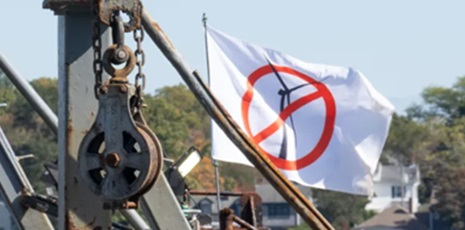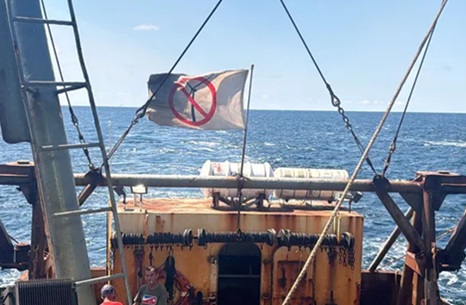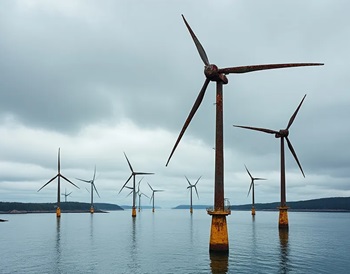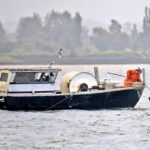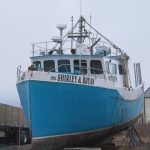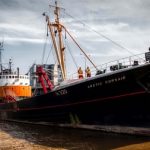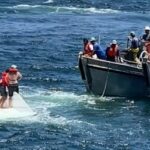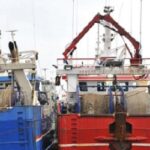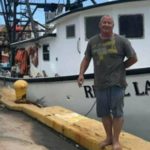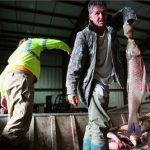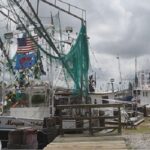Tag Archives: offshore wind farms
What Jersey Shore fishermen can learn from offshore wind farm spinning off Long Island
 Only the silent hum of the ferry as it curved around the side of one of a dozen towering wind turbines could be heard Wednesday morning off Long Island. Nearby, fishing vessels were dwarfed by the 460-foot tall towers. A few boats flecked the horizon, traveling between the vast miles that stretched from Block Island to the South Fork wind farm. One of them was helmed by a local fisherman who’s been on these waters for over half a century. Nonetheless, Auteri and fishermen up and down the East Coast, including the Jersey Shore, have shared concerns over whether species they rely on will continue to frequent the areas where sweeping wind farms (taller than the Statue of Liberty) are sited or will be. And, they say, if it is proven wind farms drive fish away they should get money to make up for their economic loss. Video, more, >>CLICK TO READ<< 13:52
Only the silent hum of the ferry as it curved around the side of one of a dozen towering wind turbines could be heard Wednesday morning off Long Island. Nearby, fishing vessels were dwarfed by the 460-foot tall towers. A few boats flecked the horizon, traveling between the vast miles that stretched from Block Island to the South Fork wind farm. One of them was helmed by a local fisherman who’s been on these waters for over half a century. Nonetheless, Auteri and fishermen up and down the East Coast, including the Jersey Shore, have shared concerns over whether species they rely on will continue to frequent the areas where sweeping wind farms (taller than the Statue of Liberty) are sited or will be. And, they say, if it is proven wind farms drive fish away they should get money to make up for their economic loss. Video, more, >>CLICK TO READ<< 13:52
Central Coast fishermen sue California Coastal Commission over wind energy
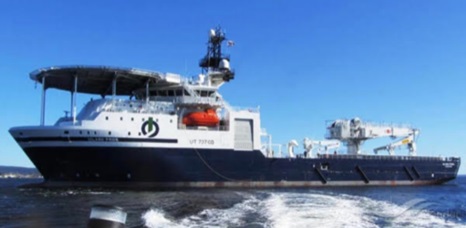 Fishermen from Morro Bay and Port San Luis recently filed a legal challenge against the California Coastal Commission for not requiring wind energy companies to abide by Bureau of Ocean Energy Management rules before providing permits for sonar testing, the second lawsuit the groups have filed against the commission. In 2022, the federal government auctioned off three offshore wind energy sites located between 20 and 30 miles off the coast near Morro Bay. Then in Dec. 2023, the state issued a permit allowing survey work to begin. The fisherman organisation’s latest lawsuit, filed on Sept. 6, argues that the Coastal Commission required the wind energy companies, including Equinor, to “have an independent liaison that is responsible for the coordination and communication of site activities with affected commercial and recreational fishing communities and harbor districts.” The fishing liaison is required to work with fishing communities and the harbor districts to coordinate survey and other activities. more, >>CLICK TO READ<< 18:18
Fishermen from Morro Bay and Port San Luis recently filed a legal challenge against the California Coastal Commission for not requiring wind energy companies to abide by Bureau of Ocean Energy Management rules before providing permits for sonar testing, the second lawsuit the groups have filed against the commission. In 2022, the federal government auctioned off three offshore wind energy sites located between 20 and 30 miles off the coast near Morro Bay. Then in Dec. 2023, the state issued a permit allowing survey work to begin. The fisherman organisation’s latest lawsuit, filed on Sept. 6, argues that the Coastal Commission required the wind energy companies, including Equinor, to “have an independent liaison that is responsible for the coordination and communication of site activities with affected commercial and recreational fishing communities and harbor districts.” The fishing liaison is required to work with fishing communities and the harbor districts to coordinate survey and other activities. more, >>CLICK TO READ<< 18:18
On US coast, wind power foes embrace ‘Save the Whales’ argument
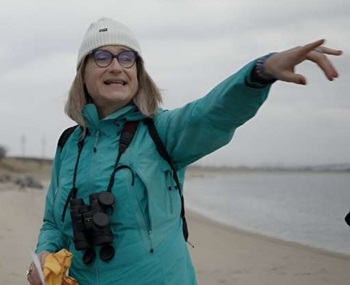 Whether from real concern for marine animals or doubts about renewable energy, the anti-wind power movement has been growing along the US East Coast, with some trying to blame a surge in whale strandings on the growth of offshore energy projects. Their attempt to link the two seems to be resonating, despite what scientists say is a clear lack of evidence. When Lauren Brandkamp and her team from the nonprofit Whale and Dolphin Conservation organization in Massachusetts carry out a rescue on an area beach, one of the first questions bystanders ask is: “Was this wind?” Wind power critics have organized coastal town gatherings, posted “Save the Whales” signs and filed lawsuits in a bid to bury new wind projects under crushing litigation fees. A recent surge in whale strandings or deaths has given them added ammunition. Photos, more, >>CLICK TO READ<< 08:41
Whether from real concern for marine animals or doubts about renewable energy, the anti-wind power movement has been growing along the US East Coast, with some trying to blame a surge in whale strandings on the growth of offshore energy projects. Their attempt to link the two seems to be resonating, despite what scientists say is a clear lack of evidence. When Lauren Brandkamp and her team from the nonprofit Whale and Dolphin Conservation organization in Massachusetts carry out a rescue on an area beach, one of the first questions bystanders ask is: “Was this wind?” Wind power critics have organized coastal town gatherings, posted “Save the Whales” signs and filed lawsuits in a bid to bury new wind projects under crushing litigation fees. A recent surge in whale strandings or deaths has given them added ammunition. Photos, more, >>CLICK TO READ<< 08:41
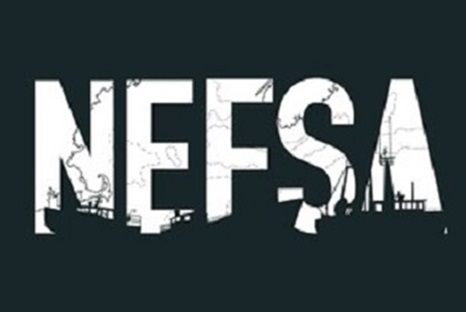
NEFSA Petition Urging Janet Mills to Halt Development of Offshore Wind in Gulf of Maine Receives Over 2,500 Signatures
The New England Fishermen’s Stewardship Association (NEFSA) will be sending Gov. Janet Mills a petition with over 2,500 signatures urging her to halt the development of offshore wind farms in the Gulf of Maine, according to a source close to the matter. NEFSA is a bipartisan nonprofit organization dedicated to helping save the region’s commercial fishing industry and preserving it for future generations. Signatories on the petition include commercial fishermen, as well as residents of New England maritime communities. In a copy of the petition’s letter obtained by the Maine Wire, NEFSA CEO Jerry Leeman urged Gov. Mills to follow in the footsteps of Oregon Gov. Tina Kotek (D) by asking the Bureau of Ocean Management (BOEM) to halt its efforts to lease property off the coast. more, >>CLICK TO READ<< 07:52
Offshore wind’s bogus benefits bragged on
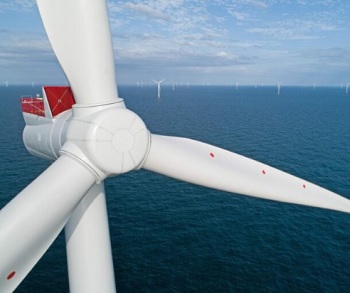 Resources for the Future (RFF) has produced a combined cost benefit analysis for 32 U.S. offshore wind projects now in development. They proudly point to the benefits outweighing the costs by a whopping 14 times. But these supposed benefits are not just exaggerated; they are fabricated. They simply do not exist. Their lengthy title is “Offshore Wind Power Examined: Effects, Benefits, and Costs of Offshore Wind Farms along the US Atlantic and Gulf Coasts”. The analysis is fairly simple which makes it easy to see the fallacies. There are just four basic benefit claims. And of course it is all based on highly questionable modeling. Before looking at each of these benefit claims it is worth noting a pervasive misconception. more, >>CLICK TO READ<< 09:18
Resources for the Future (RFF) has produced a combined cost benefit analysis for 32 U.S. offshore wind projects now in development. They proudly point to the benefits outweighing the costs by a whopping 14 times. But these supposed benefits are not just exaggerated; they are fabricated. They simply do not exist. Their lengthy title is “Offshore Wind Power Examined: Effects, Benefits, and Costs of Offshore Wind Farms along the US Atlantic and Gulf Coasts”. The analysis is fairly simple which makes it easy to see the fallacies. There are just four basic benefit claims. And of course it is all based on highly questionable modeling. Before looking at each of these benefit claims it is worth noting a pervasive misconception. more, >>CLICK TO READ<< 09:18
Swinney gives commitment to ensure that fishing and offshore wind can co-exist
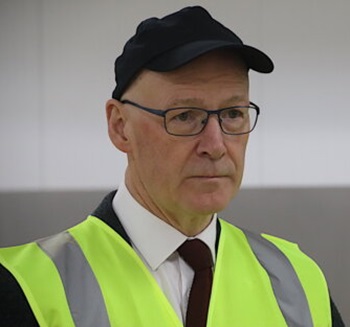 First minister John Swinney has given a commitment to ensuring the fishing industry and the offshore marine energy sector can exist together. It followed a stark warning by Elspeth Macdonald, the chief executive of the Scottish Fishermen’s Federation, that floating wind farms and the fishing sector are “simply not able to co-exist”. Speaking at last week’s SFF dinner, Macdonald call on the government to actively protect the fishing industry from the encroaching offshore wind industry. One example quoted by the industry is the proposed 500MW Stoura wind farm, 40 miles to east of Shetland, which could be built on top of prime fishing grounds for both the whitefish and the pelagic sector. Video, more, >>CLICK TO READ<< 06:47
First minister John Swinney has given a commitment to ensuring the fishing industry and the offshore marine energy sector can exist together. It followed a stark warning by Elspeth Macdonald, the chief executive of the Scottish Fishermen’s Federation, that floating wind farms and the fishing sector are “simply not able to co-exist”. Speaking at last week’s SFF dinner, Macdonald call on the government to actively protect the fishing industry from the encroaching offshore wind industry. One example quoted by the industry is the proposed 500MW Stoura wind farm, 40 miles to east of Shetland, which could be built on top of prime fishing grounds for both the whitefish and the pelagic sector. Video, more, >>CLICK TO READ<< 06:47
Second Minke Whale Found Dead Off Jersey Coast Days Since Offshore Wind Survey Ship Returned
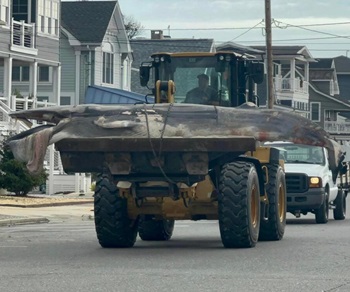 A small minke whale was found dead early Friday morning near Trenton Avenue in Lavallette, according to the Marine Mammal Stranding Center (MMSC). The whale, measuring between 10 and 12 feet, was reported to the MMSC around 6:30 a.m. The organization confirmed that this whale is different from the one sighted in the Lower Bay/Raritan Bay area on Thursday. Yesterday, a dead minke whale was found off the shoreline in Raritan Bay. According to the U.S. Coast Guard, the research vessel Time and Tide has been conducting survey operations in a corridor off Manasquan Inlet since September 29. That testing will continue through November 16. more, >>CLICK TO READ<< 10:25
A small minke whale was found dead early Friday morning near Trenton Avenue in Lavallette, according to the Marine Mammal Stranding Center (MMSC). The whale, measuring between 10 and 12 feet, was reported to the MMSC around 6:30 a.m. The organization confirmed that this whale is different from the one sighted in the Lower Bay/Raritan Bay area on Thursday. Yesterday, a dead minke whale was found off the shoreline in Raritan Bay. According to the U.S. Coast Guard, the research vessel Time and Tide has been conducting survey operations in a corridor off Manasquan Inlet since September 29. That testing will continue through November 16. more, >>CLICK TO READ<< 10:25
Anderson: Offshore wind risks outweigh exaggerated rewards
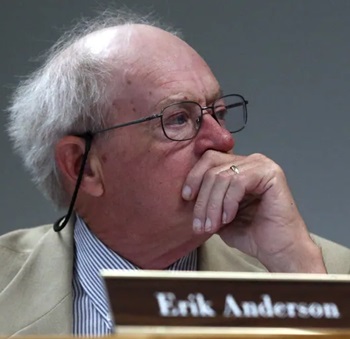 A recently published article referencing the upcoming sale/lease of 827,000 acres of area in the Gulf of Maine to developers for offshore wind turbines should not be passed over lightly. This sale/lease event will take place on Oct. 29, 2024, in a process where developers will bid on eight sites within the 827,000 acres. The article further reported on state Sen. David Watters’ involvement and advocacy for this development as a panacea for our energy needs. Truth be told, this is not as accurate as it appears as offshore wind poses more of an environmental threat than remedy when one investigates the details. The fishing industry coastwide has expressed their legitimate concerns on a variety of issues, and more and more of the general public is now expressing their skepticism, as they should. more, >>CLICK TO READ<< 15:33
A recently published article referencing the upcoming sale/lease of 827,000 acres of area in the Gulf of Maine to developers for offshore wind turbines should not be passed over lightly. This sale/lease event will take place on Oct. 29, 2024, in a process where developers will bid on eight sites within the 827,000 acres. The article further reported on state Sen. David Watters’ involvement and advocacy for this development as a panacea for our energy needs. Truth be told, this is not as accurate as it appears as offshore wind poses more of an environmental threat than remedy when one investigates the details. The fishing industry coastwide has expressed their legitimate concerns on a variety of issues, and more and more of the general public is now expressing their skepticism, as they should. more, >>CLICK TO READ<< 15:33
2 Delaware watermen sue to delay US Wind turbine project off Ocean City coast
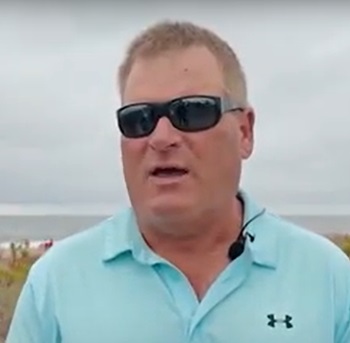 The Caesar Rodney Institute filed the lawsuit against the Delaware Department of Natural Resources and Environmental Control on the watermen’s behalf, focusing on a technicality that U.S. Wind did not complete an application that would allow the company to bring transmission lines ashore to Delaware and build a power substation next to the Indian River Powerplant. The lawsuit asks the Sussex County Superior Court to declare that the agency can’t grant a permit because the application is incomplete. The application for a beach construction permit requires a report from the Division of Watershed Stewardship, as well as zoning approvals, which have not been done. “Law and the regulations they adopted require that approval for the zoning required as part of the project be done before the permits are granted, and, in fact, it’s a mandatory component of the application itself,” attorney Jane Brady said. Video, more, >>CLICK TO READ<< 09:33
The Caesar Rodney Institute filed the lawsuit against the Delaware Department of Natural Resources and Environmental Control on the watermen’s behalf, focusing on a technicality that U.S. Wind did not complete an application that would allow the company to bring transmission lines ashore to Delaware and build a power substation next to the Indian River Powerplant. The lawsuit asks the Sussex County Superior Court to declare that the agency can’t grant a permit because the application is incomplete. The application for a beach construction permit requires a report from the Division of Watershed Stewardship, as well as zoning approvals, which have not been done. “Law and the regulations they adopted require that approval for the zoning required as part of the project be done before the permits are granted, and, in fact, it’s a mandatory component of the application itself,” attorney Jane Brady said. Video, more, >>CLICK TO READ<< 09:33
Nova Scotia: GCIFA wants fewer sites considered for offshore wind
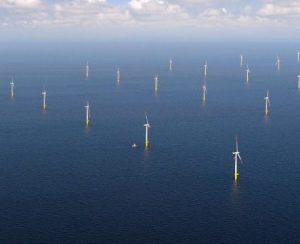 Concerned about the effects of massive turbine installations and operations on or near commercial fishing grounds, the Guysborough County Inshore Fisherman’s Association (GCIFA) wants two of the six sites being considered for offshore wind (OSW) farms in Nova Scotia removed from the list of potential future development areas (PFDAs). We request [that these PFDAs] be deleted from further consideration. “The Canso-based organization – representing roughly 150 small-boat harvesters on the Eastern Shore – also raises issues over use of the Middle Bank PFDA and the combined size of the areas under consideration and suggests that all OSW farms be located around Sable Island, where there are “very low [existing] commercial landings,” and they can do the least harm to harvesters. more, >>CLICK TO READ<< 07:59
Concerned about the effects of massive turbine installations and operations on or near commercial fishing grounds, the Guysborough County Inshore Fisherman’s Association (GCIFA) wants two of the six sites being considered for offshore wind (OSW) farms in Nova Scotia removed from the list of potential future development areas (PFDAs). We request [that these PFDAs] be deleted from further consideration. “The Canso-based organization – representing roughly 150 small-boat harvesters on the Eastern Shore – also raises issues over use of the Middle Bank PFDA and the combined size of the areas under consideration and suggests that all OSW farms be located around Sable Island, where there are “very low [existing] commercial landings,” and they can do the least harm to harvesters. more, >>CLICK TO READ<< 07:59
Maine Unions Lead on the Green Energy Transition
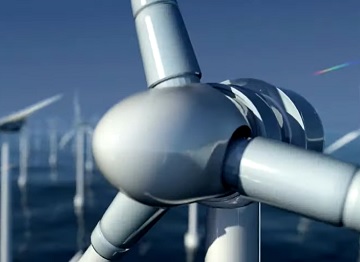 Maine’s fifteen years long OSW policy debates have been hobbled by entrenched opposition from Maine’s lobstermen. It would also be impossible to convince politicians to pass an OSW law that was oblivious to the interests of Maine’s lobstermen. Governor Mills and her team reached out to Maine Lobstermen’s Association (MLA), but they did not break through the impasse. The MLA continues to oppose OSW by arguing about potential impacts “on the marine environment, commercial fishermen and our fishing heritage.” MLA’s opposition has grown stronger in the past few years under the influence of New England Fishermen’s Stewardship Association (NEFSA), which is orchestrating conservative anti-OSW campaigns across the East Coast. To break this logjam, the MLCC worked with the country’s only lobstering union, Lobster 207. Though a small fraction of Maine lobster fishers are unionized, the lobstering union has a crucial role in advocating for improved working conditions within the lobstering industry. more, >>CLICK TO READ<< 08:50
Maine’s fifteen years long OSW policy debates have been hobbled by entrenched opposition from Maine’s lobstermen. It would also be impossible to convince politicians to pass an OSW law that was oblivious to the interests of Maine’s lobstermen. Governor Mills and her team reached out to Maine Lobstermen’s Association (MLA), but they did not break through the impasse. The MLA continues to oppose OSW by arguing about potential impacts “on the marine environment, commercial fishermen and our fishing heritage.” MLA’s opposition has grown stronger in the past few years under the influence of New England Fishermen’s Stewardship Association (NEFSA), which is orchestrating conservative anti-OSW campaigns across the East Coast. To break this logjam, the MLCC worked with the country’s only lobstering union, Lobster 207. Though a small fraction of Maine lobster fishers are unionized, the lobstering union has a crucial role in advocating for improved working conditions within the lobstering industry. more, >>CLICK TO READ<< 08:50
“I am glad this auction has been canceled”: City of Brookings responds to BOEM wind energy plan delay
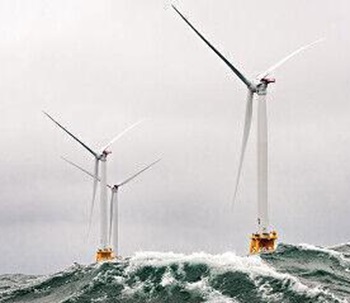 In response to the auction being postponed Brookings mayor Isaac Hodges said, “I’m happy that even a pause shows that there’ll hopefully be a little bit more input from the community to allow for a little bit more of our voices to be heard. There definitely was a lot of trust lost with the way that this was pushed forward.” His colleague on the Brookings City Council gave a statement, calling this a positive move for the city. “I am glad this auction has been canceled. There was very little local support for the offshore wind energy project – it was not cost effective, the impacts on recreational and commercial fishing were ignored by the federal government, along with the adverse impact on marine mammals, birds, shellfish and other wildlife. It is absurd the state and federal government ignored concerns about the impact on our way of life on the southern Oregon Coast. We would have been forced to see offshore wind mills day and night and would have had to deal with the environmental impacts of giant windmills washing up on our shoreline after major winter storms. The city of Brookings has opposed this project from the beginning. I am glad this has fallen apart now, instead of after major environmental and economic damage was done to our region.” more, >>CLICK TO READ<< 07:48
In response to the auction being postponed Brookings mayor Isaac Hodges said, “I’m happy that even a pause shows that there’ll hopefully be a little bit more input from the community to allow for a little bit more of our voices to be heard. There definitely was a lot of trust lost with the way that this was pushed forward.” His colleague on the Brookings City Council gave a statement, calling this a positive move for the city. “I am glad this auction has been canceled. There was very little local support for the offshore wind energy project – it was not cost effective, the impacts on recreational and commercial fishing were ignored by the federal government, along with the adverse impact on marine mammals, birds, shellfish and other wildlife. It is absurd the state and federal government ignored concerns about the impact on our way of life on the southern Oregon Coast. We would have been forced to see offshore wind mills day and night and would have had to deal with the environmental impacts of giant windmills washing up on our shoreline after major winter storms. The city of Brookings has opposed this project from the beginning. I am glad this has fallen apart now, instead of after major environmental and economic damage was done to our region.” more, >>CLICK TO READ<< 07:48
Days on the water, nights at Town Office: Harpswell lobsterman advocates for working waterfront on 7 committees
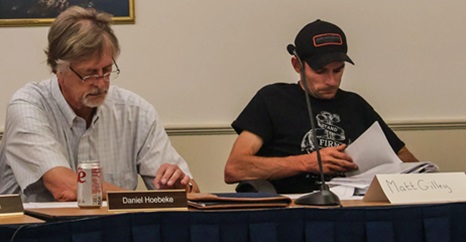 Matt Gilley stood in front of a shelf in his Cundy’s Harbor home. It holds a collection of marine oddities from the bottom of lobster traps, such as unique lobster claws, a seahorse, and a full-sized clam that grew inside a Coke bottle. “The fun part of it is, you don’t know what’s going to come up,” he said. Gilley himself is a rarity in Harpswell. In a town with 216 miles of coastline and “working waterfront” on many local signs, he is one of a small group of commercial lobstermen involved in town government, spending his mornings on the water and his evenings advocating for those who work on it. “I want to see lobstering continue, and the only way for that to continue is for there to be another generation,” he said. “If I can do anything to conserve what little we have left so other people can do it, I’m going to do it.” Photos, more, >>CLICK TO READ<< 09:10
Matt Gilley stood in front of a shelf in his Cundy’s Harbor home. It holds a collection of marine oddities from the bottom of lobster traps, such as unique lobster claws, a seahorse, and a full-sized clam that grew inside a Coke bottle. “The fun part of it is, you don’t know what’s going to come up,” he said. Gilley himself is a rarity in Harpswell. In a town with 216 miles of coastline and “working waterfront” on many local signs, he is one of a small group of commercial lobstermen involved in town government, spending his mornings on the water and his evenings advocating for those who work on it. “I want to see lobstering continue, and the only way for that to continue is for there to be another generation,” he said. “If I can do anything to conserve what little we have left so other people can do it, I’m going to do it.” Photos, more, >>CLICK TO READ<< 09:10
Maine’s massive “floating wind” folly — my report
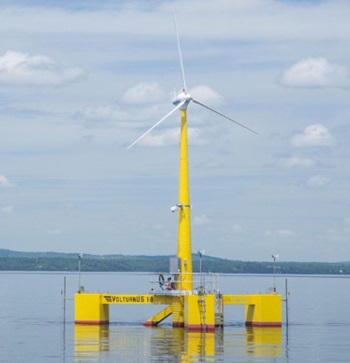 Below is my Executive Summary, followed by the latest bad news on this ongoing silly saga. This report examines several fundamental aspects of the State of Maine’s offshore wind development plan. It is divided into two parts. Part 1 examines certain economic issues, such as feasibility, cost, and progress to date. Part 2 explores the proposed development as it relates to the entire Gulf of Maine, namely because the project has not advanced to the point where the State of Maine’s responsibilities have been defined. The offshore wind plan calls for development of 3,000 MW of generating capacity, an amount that is roughly double Maine’s average electricity usage. The viability of Maine’s offshore wind plan depends entirely on the massive transformation of the state’s grid from fossil fuel use to electrification. It is clear that the citizens of Maine have not been informed of this vast transformation requirement. They have certainly not approved it. more, >>CLICK TO READ<< 09:34
Below is my Executive Summary, followed by the latest bad news on this ongoing silly saga. This report examines several fundamental aspects of the State of Maine’s offshore wind development plan. It is divided into two parts. Part 1 examines certain economic issues, such as feasibility, cost, and progress to date. Part 2 explores the proposed development as it relates to the entire Gulf of Maine, namely because the project has not advanced to the point where the State of Maine’s responsibilities have been defined. The offshore wind plan calls for development of 3,000 MW of generating capacity, an amount that is roughly double Maine’s average electricity usage. The viability of Maine’s offshore wind plan depends entirely on the massive transformation of the state’s grid from fossil fuel use to electrification. It is clear that the citizens of Maine have not been informed of this vast transformation requirement. They have certainly not approved it. more, >>CLICK TO READ<< 09:34
Editorial: Save commercial fishing industry
 Commercial fishing operators working out of the harbor in West Ocean City have been cast adrift, as the push to build an offshore wind farm about 12 miles east of Ocean City has rolled over their concerns. As was noted in a meeting Tuesday between Department of Natural Resources officials and commercial fishing operators, the construction of a maintenance facility at the commercial harbor could leave the few boats still operating there without space to unload their catch. No one, outside of the fishing community itself, apparently thought of that problem and one suspects that the state and federal governments would advise members of that industry to produce their own solution, which they don’t have the resources to do. more, >>CLICK TO READ<< 06:35
Commercial fishing operators working out of the harbor in West Ocean City have been cast adrift, as the push to build an offshore wind farm about 12 miles east of Ocean City has rolled over their concerns. As was noted in a meeting Tuesday between Department of Natural Resources officials and commercial fishing operators, the construction of a maintenance facility at the commercial harbor could leave the few boats still operating there without space to unload their catch. No one, outside of the fishing community itself, apparently thought of that problem and one suspects that the state and federal governments would advise members of that industry to produce their own solution, which they don’t have the resources to do. more, >>CLICK TO READ<< 06:35
Right whales and offshore wind: reflections on an uneasy coexistence
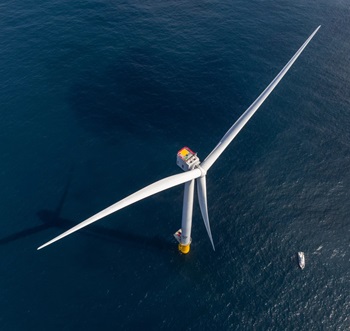 Michael Moore has spent decades studying North Atlantic right whales. He’s seen somewhere around 150 of them. It’s a feat, given that now there are just about 360 left in the world. But the veterinarian, author, and scientist emeritus from the Woods Hole Oceanographic Institution had never seen an offshore wind farm up close — until last week. “Look at them. All out in neat little rows,” he said, standing at the rear of a 53-foot charter boat that offered a closeup view of construction on Vineyard Wind, 15 miles south of Martha’s Vineyard. About half of the planned 62 turbines are fully constructed, reaching more than 250 meters into the sky. When the boat slowed down to pass beneath one of the turbines, Moore was awestruck by the length of a blade. “Right whales are 40 to 50 feet,” he said. “So, you can stretch seven right whales along the length of one of these blades.” Photos, more, >>CLICK TO READ<< 16:48
Michael Moore has spent decades studying North Atlantic right whales. He’s seen somewhere around 150 of them. It’s a feat, given that now there are just about 360 left in the world. But the veterinarian, author, and scientist emeritus from the Woods Hole Oceanographic Institution had never seen an offshore wind farm up close — until last week. “Look at them. All out in neat little rows,” he said, standing at the rear of a 53-foot charter boat that offered a closeup view of construction on Vineyard Wind, 15 miles south of Martha’s Vineyard. About half of the planned 62 turbines are fully constructed, reaching more than 250 meters into the sky. When the boat slowed down to pass beneath one of the turbines, Moore was awestruck by the length of a blade. “Right whales are 40 to 50 feet,” he said. “So, you can stretch seven right whales along the length of one of these blades.” Photos, more, >>CLICK TO READ<< 16:48
Debate Over Offshore Wind Farms Continues at Ocean City BOEM Meeting
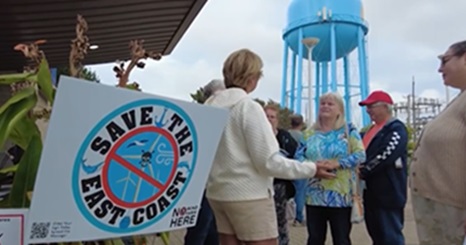 Ocean City residents voiced strong opposition Tuesday night at a public meeting hosted by the Bureau of Ocean Energy Management (BOEM) regarding potential offshore wind farm developments along the Maryland coast. The meeting discussed areas that could be leased for wind energy projects, which has been raising concerns among residents. Many Ocean City residents expressed concerns about the environmental, economic, and aesthetic impact of more wind farms. Hundreds attended the meeting. “It’s just not sound business. It’s not a good idea for our environment. The fishery will be destroyed out here, the viewshed will be destroyed, and it’s going to harm Ocean City—irreparable harm to our community,” said one attendee. Video, more, >>CLICK TO READ<< 08:41
Ocean City residents voiced strong opposition Tuesday night at a public meeting hosted by the Bureau of Ocean Energy Management (BOEM) regarding potential offshore wind farm developments along the Maryland coast. The meeting discussed areas that could be leased for wind energy projects, which has been raising concerns among residents. Many Ocean City residents expressed concerns about the environmental, economic, and aesthetic impact of more wind farms. Hundreds attended the meeting. “It’s just not sound business. It’s not a good idea for our environment. The fishery will be destroyed out here, the viewshed will be destroyed, and it’s going to harm Ocean City—irreparable harm to our community,” said one attendee. Video, more, >>CLICK TO READ<< 08:41
Lawmakers seek pause in offshore wind energy amid whale deaths
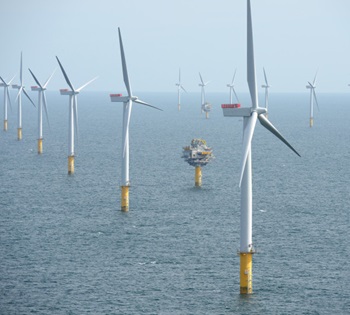 House lawmakers are seeking a pause in offshore wind energy projects amid a string of whale deaths along the coasts of Maryland, New York, New Jersey and Maine. Last week, a deceased whale beached off Maryland’s coast, the second whale carcass discovered in the area in three weeks. In 2023, 37 humpback whales carcasses were discovered along the East Coast. Rep. Andy Harris (R-Md.) hosted a public hearing in August in which experts testified about the danger installing wind turbines poses marine wildlife. Harris called for an end to offshore wind energy in Maryland. The Government Accountability Office plans to investigate the impacts of offshore wind development after Rep. Chris Smith (R-N.J) requested it look into the issues. more, >>CLICK TO READ<< 06:48
House lawmakers are seeking a pause in offshore wind energy projects amid a string of whale deaths along the coasts of Maryland, New York, New Jersey and Maine. Last week, a deceased whale beached off Maryland’s coast, the second whale carcass discovered in the area in three weeks. In 2023, 37 humpback whales carcasses were discovered along the East Coast. Rep. Andy Harris (R-Md.) hosted a public hearing in August in which experts testified about the danger installing wind turbines poses marine wildlife. Harris called for an end to offshore wind energy in Maryland. The Government Accountability Office plans to investigate the impacts of offshore wind development after Rep. Chris Smith (R-N.J) requested it look into the issues. more, >>CLICK TO READ<< 06:48
Proposed wind farms ‘devastating’ for fishers
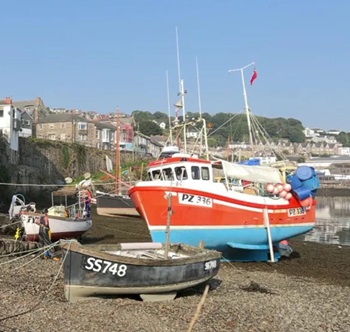 Proposals to expand planned wind farm sites off the Devon and Cornwall coast could devastate the fishing industry, fishermen have warned. It comes after the Crown Estate, which owns the sea bed, published its latest map of potential development zones. It includes thousands of square miles off Land’s End and the Isles of Scilly, currently prime fishing grounds, and an expanded zone off north Devon. Dave Stevens, who has fished off Newlyn for 30 years, said new offshore wind development would not be good for the industry. “It would be a devastating blow if that went ahead,” he said. “Everyone would be wanting to get out. “I don’t think the industry has been this challenged ever.” more, >>CLICK TO READ<< 08:35
Proposals to expand planned wind farm sites off the Devon and Cornwall coast could devastate the fishing industry, fishermen have warned. It comes after the Crown Estate, which owns the sea bed, published its latest map of potential development zones. It includes thousands of square miles off Land’s End and the Isles of Scilly, currently prime fishing grounds, and an expanded zone off north Devon. Dave Stevens, who has fished off Newlyn for 30 years, said new offshore wind development would not be good for the industry. “It would be a devastating blow if that went ahead,” he said. “Everyone would be wanting to get out. “I don’t think the industry has been this challenged ever.” more, >>CLICK TO READ<< 08:35
Big Fish Offshore Wind Producers Catch Attention Of Texas Fishermen
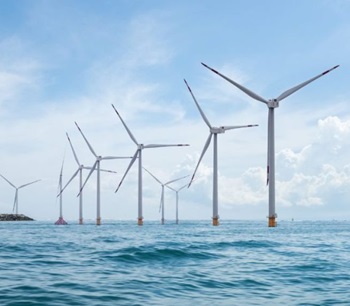 There is a fight on the open seas in Texas’ Gulf, not between sailors and pirates but between two of America’s most ambitious offshore wind producers. BlackRock-backed RWE Offshore US Gulf LLC recently asked the Bureau of Ocean Energy Management (BOEM) to pressure its competitor, Hecate Energy Gulf Wind LLC, to shell out big bucks to compensate Texas fishermen for potential damage to their fishing areas. “RWE urges BOEM to consider including an option for Hecate Energy –- and any future unsolicited proposals in the Gulf of Mexico — to commit funding for a Fisheries Compensatory Mitigation Fund,” the company recently said during a public comment period on a developing offshore wind project in south Texas. RWE also encouraged BOEM to require Hecate to develop a communication plan with fisheries and tribal governments. Texas’ fishing industry vigorously opposes RWE’s offshore wind projects, such as GOM WEA Option M near the TX-LA border. more, >>CLICK TO READ<< 16:14
There is a fight on the open seas in Texas’ Gulf, not between sailors and pirates but between two of America’s most ambitious offshore wind producers. BlackRock-backed RWE Offshore US Gulf LLC recently asked the Bureau of Ocean Energy Management (BOEM) to pressure its competitor, Hecate Energy Gulf Wind LLC, to shell out big bucks to compensate Texas fishermen for potential damage to their fishing areas. “RWE urges BOEM to consider including an option for Hecate Energy –- and any future unsolicited proposals in the Gulf of Mexico — to commit funding for a Fisheries Compensatory Mitigation Fund,” the company recently said during a public comment period on a developing offshore wind project in south Texas. RWE also encouraged BOEM to require Hecate to develop a communication plan with fisheries and tribal governments. Texas’ fishing industry vigorously opposes RWE’s offshore wind projects, such as GOM WEA Option M near the TX-LA border. more, >>CLICK TO READ<< 16:14
US offshore wind projects pelted with suits to end, delay progress
 There are 13 cases pending in federal courts targeting offshore wind projects, according to the American Clean Power Association, an offshore wind trade group. An undetermined number of additional lawsuits is active in state courts, they said. Robin Shaffer is president of Protect Our Coast NJ, a citizens group that has filed numerous lawsuits in New Jersey against two offshore projects currently or previously proposed. Shaffer said his group was at least partly responsible for scuttling two New Jersey wind farms proposed by Orsted that the Danish wind giant scrapped in October, saying they were no longer financially workable. more, >>CLICK TO READ<< 08:57
There are 13 cases pending in federal courts targeting offshore wind projects, according to the American Clean Power Association, an offshore wind trade group. An undetermined number of additional lawsuits is active in state courts, they said. Robin Shaffer is president of Protect Our Coast NJ, a citizens group that has filed numerous lawsuits in New Jersey against two offshore projects currently or previously proposed. Shaffer said his group was at least partly responsible for scuttling two New Jersey wind farms proposed by Orsted that the Danish wind giant scrapped in October, saying they were no longer financially workable. more, >>CLICK TO READ<< 08:57
Feds fund offshore wind study hoping to boost market in Atlantic Canada
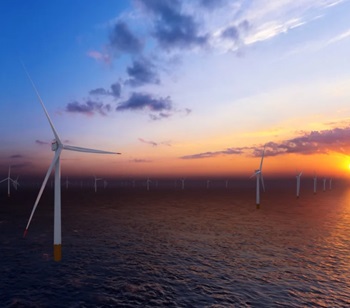 Federal funding for a pioneering offshore wind power grid study in the Canadian Maritimes should help draw big-hitting developers to the region’s first project auction next year. But commercialization of the market remains on the far horizon, says a leading industry analyst. Ottawa earlier this week awarded $6 million to Net Zero Atlantic, a low-carbon research and development hub in Nova Scotia, for the Atlantic Canada Offshore Wind Integration and Transmission Study, which aims to show how future offshore wind farms could export power to the onshore electricity network. While $6 million of the funding to Net Zero Atlantic will go toward the grid study, a further $3.25 million will be dedicated to technologies associated with fishing vessels and ferry fleets, agriculture, carbon capture, hydrogen and energy storage. more, >>CLICK TO READ<< 07:38
Federal funding for a pioneering offshore wind power grid study in the Canadian Maritimes should help draw big-hitting developers to the region’s first project auction next year. But commercialization of the market remains on the far horizon, says a leading industry analyst. Ottawa earlier this week awarded $6 million to Net Zero Atlantic, a low-carbon research and development hub in Nova Scotia, for the Atlantic Canada Offshore Wind Integration and Transmission Study, which aims to show how future offshore wind farms could export power to the onshore electricity network. While $6 million of the funding to Net Zero Atlantic will go toward the grid study, a further $3.25 million will be dedicated to technologies associated with fishing vessels and ferry fleets, agriculture, carbon capture, hydrogen and energy storage. more, >>CLICK TO READ<< 07:38
Thomas Elias: Gov. Newsom committing to big wind power projects risky right now
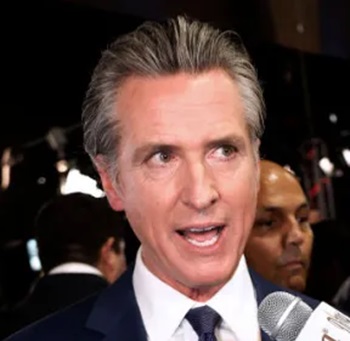 There weren’t many causes Gov. Gavin Newsom pushed harder during the just-concluded state legislative session than offshore wind power, something that has been tried in only a few places around America. For some in the California Legislature, including state Senate President Mike McGuire, D-Healdsburg, this seems an easy way to modernize the state’s electric grid without risking much pollution, taking advantage of an inexhaustible natural resource — winds that often gust at 40 mph or more. However, now it’s time for Newsom to go slow before committing California electric customers (who always pay for new generating facilities via their monthly bills) to fund this largely untried renewable energy source. If adopted, a plan to build enough offshore windmills to fill about 6% of California’s electric needs would be America’s largest commitment to offshore wind power. There is not yet any offshore wind power along the Pacific Coast, but yes, there is offshore wind power on the Atlantic Coast. There’s a small (five-turbine) project off Block Island, Rhode Island. Also, there are a few windmills off Virginia and others off Massachusetts’ Nantucket Island. more, >>CLICK TO READ<< 12:22
There weren’t many causes Gov. Gavin Newsom pushed harder during the just-concluded state legislative session than offshore wind power, something that has been tried in only a few places around America. For some in the California Legislature, including state Senate President Mike McGuire, D-Healdsburg, this seems an easy way to modernize the state’s electric grid without risking much pollution, taking advantage of an inexhaustible natural resource — winds that often gust at 40 mph or more. However, now it’s time for Newsom to go slow before committing California electric customers (who always pay for new generating facilities via their monthly bills) to fund this largely untried renewable energy source. If adopted, a plan to build enough offshore windmills to fill about 6% of California’s electric needs would be America’s largest commitment to offshore wind power. There is not yet any offshore wind power along the Pacific Coast, but yes, there is offshore wind power on the Atlantic Coast. There’s a small (five-turbine) project off Block Island, Rhode Island. Also, there are a few windmills off Virginia and others off Massachusetts’ Nantucket Island. more, >>CLICK TO READ<< 12:22
FISHERMEN OPPOSE INDUSTRIALISATION OF OUR OCEANS
 “The New England Fishermen’s Stewardship Association (NEFSA) remains steadfast in its opposition to the industrialisation of our oceans, despite the shrinking of the original proposed lease area. The final eight lease areas encompass a total of 827,886 acres in the Gulf of Maine and pose an existential threat to all marine species, habitat, and to the livelihoods of current and future generations of sustainable fishermen upon whom their communities rely on for survival. The six lase areas in the southern Gulf of Maine comprise a Great Wall of Windmills that threaten mariners and the marine environment. more, >>CLICK TO READ<< 06:33
“The New England Fishermen’s Stewardship Association (NEFSA) remains steadfast in its opposition to the industrialisation of our oceans, despite the shrinking of the original proposed lease area. The final eight lease areas encompass a total of 827,886 acres in the Gulf of Maine and pose an existential threat to all marine species, habitat, and to the livelihoods of current and future generations of sustainable fishermen upon whom their communities rely on for survival. The six lase areas in the southern Gulf of Maine comprise a Great Wall of Windmills that threaten mariners and the marine environment. more, >>CLICK TO READ<< 06:33Glass fibers – the rest of the story????? by Nils E. Stolpe/FishNet-USA
 Floating around (sorry!) is the surprising story that the fiberglass that is being donated gratis to our oceans by the offshore wind industry is harmless because the fibers that make it up are chemically inert. Reassuring, isn’t it? Well, in words made immortal by George and Irwin Gershwin in Porgy and Bess, “it ain’t necessarily so.” To put those immortal words in the proper real world (not NOAA or BOEM scientist’s) perspective, the asbestos fibers that are still being used legally in a whole bunch of manufacturing processes today are chemically inert on their own. You can chomp on and swallow asbestos fibers to your heart’s content, as long as they stay in large chunks, with no ill effects. According to the National Library of Medicine “asbestos fibers are basically chemically inert, or nearly so. They do not evaporate, dissolve, burn, or undergo significant reactions with most chemicals.” So what happens when a huge fiberglass rotor on an offshore generator (300+ feet long and still enlarging as wind generators become larger-and more efficient) delaminates and takes a dive into one of our oceans? more, >>CLICK TO READ<< 15:52
Floating around (sorry!) is the surprising story that the fiberglass that is being donated gratis to our oceans by the offshore wind industry is harmless because the fibers that make it up are chemically inert. Reassuring, isn’t it? Well, in words made immortal by George and Irwin Gershwin in Porgy and Bess, “it ain’t necessarily so.” To put those immortal words in the proper real world (not NOAA or BOEM scientist’s) perspective, the asbestos fibers that are still being used legally in a whole bunch of manufacturing processes today are chemically inert on their own. You can chomp on and swallow asbestos fibers to your heart’s content, as long as they stay in large chunks, with no ill effects. According to the National Library of Medicine “asbestos fibers are basically chemically inert, or nearly so. They do not evaporate, dissolve, burn, or undergo significant reactions with most chemicals.” So what happens when a huge fiberglass rotor on an offshore generator (300+ feet long and still enlarging as wind generators become larger-and more efficient) delaminates and takes a dive into one of our oceans? more, >>CLICK TO READ<< 15:52
Against the Wind: Questions About BOEM’s Fisheries Analysis
 The Bureau of Ocean Energy Management (BOEM) announced the final sale notice for the Gulf of Maine offshore wind project lease areas on Sept. 16. The agency shrunk the overall area by 120,000 acres, removing significant portions of the two northern leases off the coast of Maine, carving a transit lane between the two farthest-offshore southern areas, and shaving small portions off other southern areas. This decision did little to satisfy Jerry Leeman, a Harpswell, Maine-based former commercial fisherman and founder of the New England Fishermen’s Stewardship Association (NEFSA), an organization that opposes the Gulf of Maine offshore wind area. NEFSA “remains steadfast in its opposition,” wrote Leeman in a press release, “despite the shrinking of the original areas.” more, >>CLICK TO READ<< 06:22
The Bureau of Ocean Energy Management (BOEM) announced the final sale notice for the Gulf of Maine offshore wind project lease areas on Sept. 16. The agency shrunk the overall area by 120,000 acres, removing significant portions of the two northern leases off the coast of Maine, carving a transit lane between the two farthest-offshore southern areas, and shaving small portions off other southern areas. This decision did little to satisfy Jerry Leeman, a Harpswell, Maine-based former commercial fisherman and founder of the New England Fishermen’s Stewardship Association (NEFSA), an organization that opposes the Gulf of Maine offshore wind area. NEFSA “remains steadfast in its opposition,” wrote Leeman in a press release, “despite the shrinking of the original areas.” more, >>CLICK TO READ<< 06:22

Concerned residents file second lawsuit against New Jersey offshore wind project over noise pollution
Save Long Beach Island, a community group created in opposition to a massive offshore wind project off the coast of New Jersey, filed its second lawsuit to block the construction of an Atlantic Shores South project. In its lawsuit against Atlantic Shore South Offshore Wind, Save Long Beach Island requested that the court require offshore wind developers to conduct a full “airborne noise assessment and pilot project before the project can proceed.” Bob Stern, president of Save Long Beach Island, notes how the Bureau of Ocean Energy Management and Atlantic Shores South failed to conduct an analysis of the project’s construction and operation on generating noise pollution for residents and beachgoers. However, the Bureau of Ocean Management did find that noise from the construction of turbines would have a negative effect on marine life. more, >>CLICK TO READ<< 08:41






